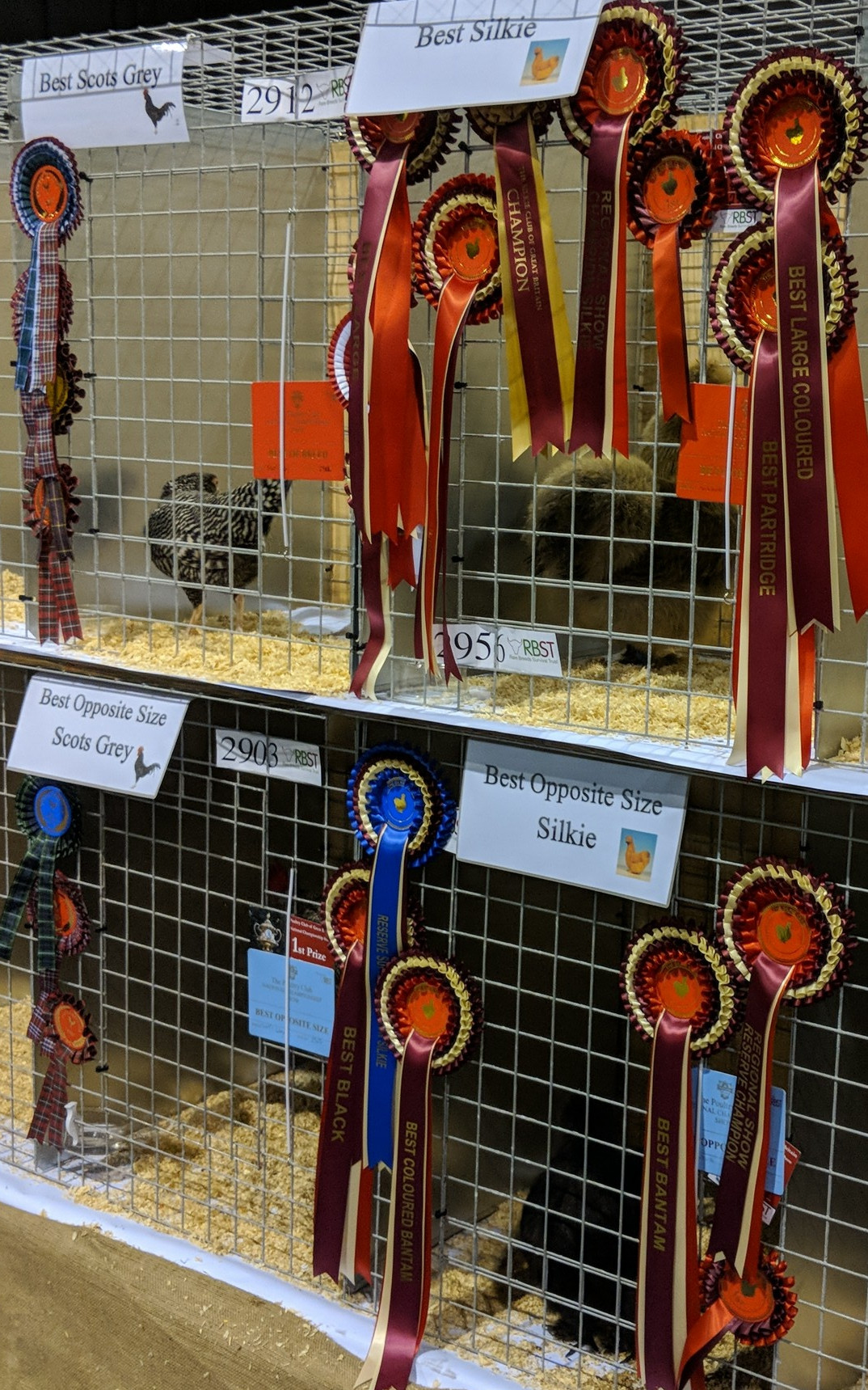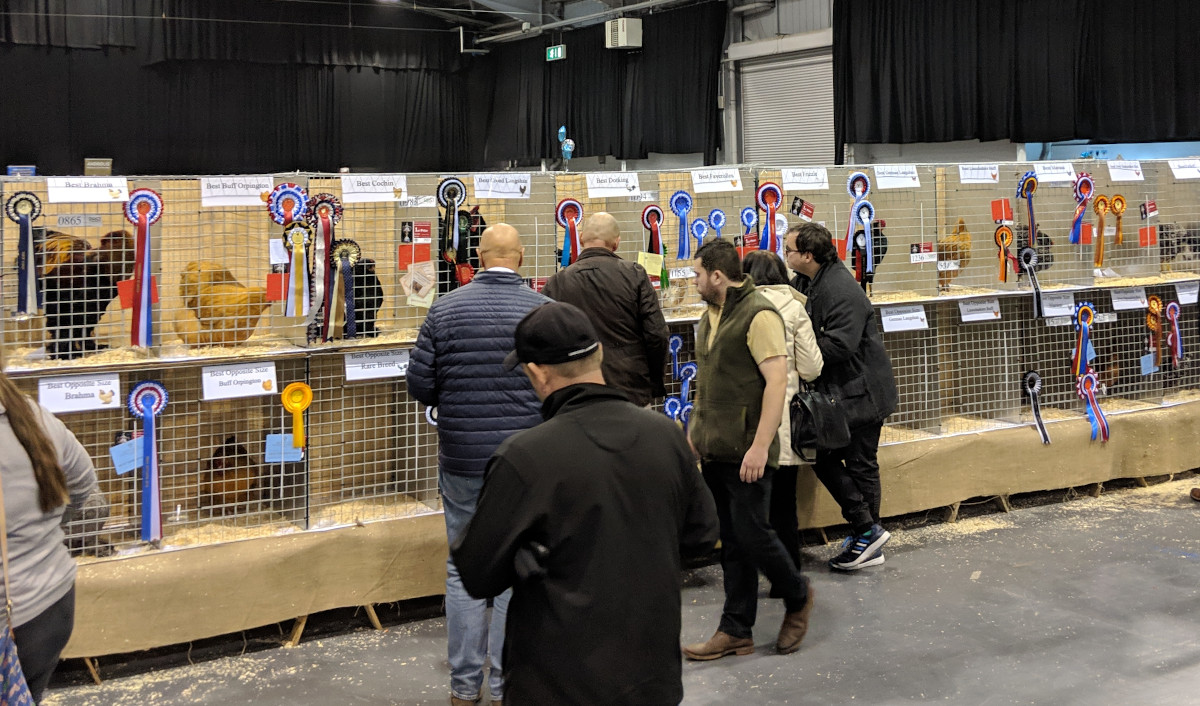
What happens at a poultry show?
Chicken and poultry shows happen at local, regional and National or championship level shows. Here in the UK we also have 9 royal shows like the "Royal Highland" which have patronage.
You normally need to compete and receive a placing to proceed to the next level of show.
Table of Contents
What should you expect to happen at a poultry show?
Poultry shows can last anything from a few hours at local shows to three days for national events.
The morning of the show is spent placing your birds in their cages and getting the ready. You will need feed and water as well as a source of amusement in the cage like a wedge of swede or rutabaga.
Poultry shows are noisy events as the cockerels do quite a bit of crowing.
The entrants are not normally allowed to be near the judging but you can sometimes ask questions after the event. Luckily as I wasn't showing at this event I was given permission to film for the website.
Below: Judging a large fowl Brahma. You can hear how much background noise there is.
The judge will spend 30 seconds or so watching the bird to see how it moves before proceeding to the examination. The wings are extended to check for feathers and full and free movement.
The shape will be checked by feel and the condition and colour of the feathers will be checked against the standards of perfection.
What kind of chickens can you show?
You can show almost any breed and size of chicken. Hybrids are not eligible to be shown and breeds have certain disqualifying factors which will get you disqualified from the contest.
There are also sometimes children categories for non standard chickens at some of the smaller local shows.
Below: A bantam Wyandotte, winner of the the small fowl soft feather class.
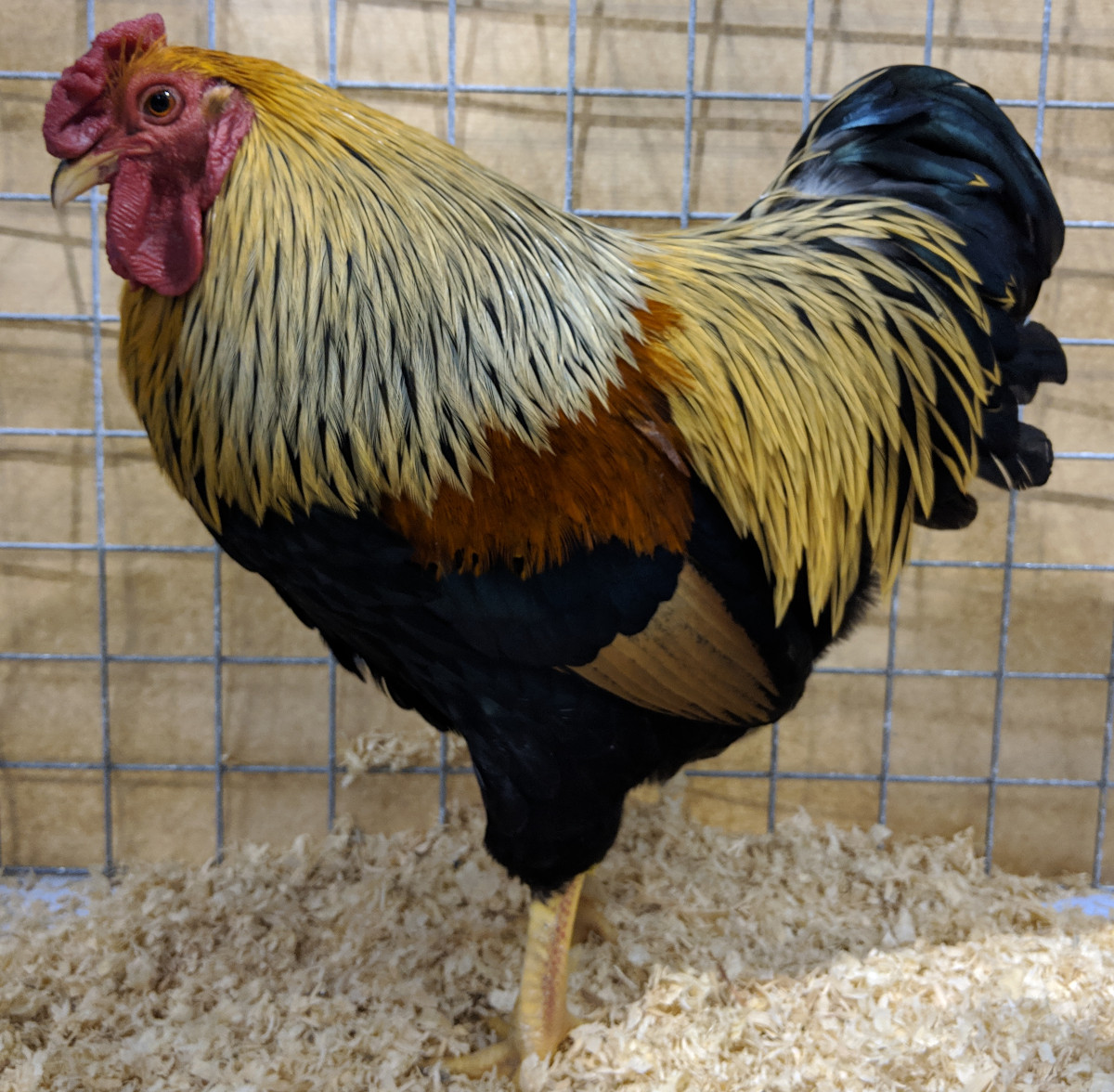
Heritage meat varieties are often shown but modern meat hybrids are not eligible.
Classes at poultry shows:
- Individual breed classes,
- Large Hard Feather,
- Large Soft Feather,
- True Bantams,
- Waterfowl,
- Trios,
- Bantam Hard Feather,
- Bantam SF Heavy,
- Bantam SF Light,
- Juveniles,
- Rare Breeds,
- Turkeys,
- Utility,
- Eggs. Egg classes include best egg, best bantam egg, best contents, best single and waterfowl as well as plates and decorations.
Chickens can compete in more than one class, the large fowl Barnevelder gets to compete in both the breed class and the large fowl soft feather class.
Best in class go on to compete for best in show.
What age should you show chickens?
You can show chickens from almost any age, as long as you are old enough to handle your birds. The chickens you show need to be mature which is generally considered to be 26 weeks of age.
For show purposes chickens under a year old are considered to be "young" or "juvenile" and sometimes have their own classes.
Below: A Sebright in the true bantam class. With birds of this quality competition is likely to stiff.
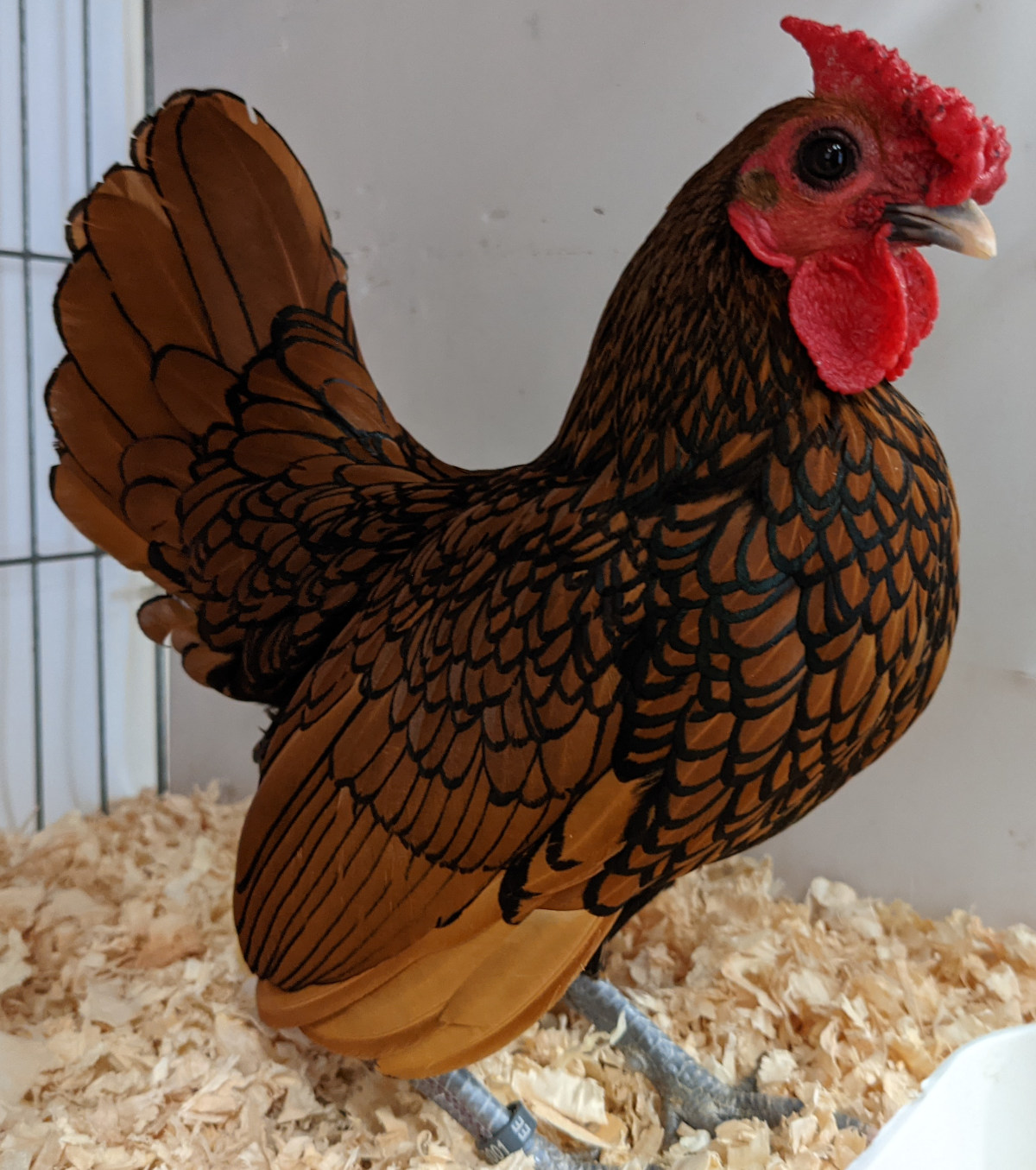
Poultry show standards:
Breeds are expected to adhere to their standards as it is the benchmark they are judged against and they are crucial to the long term survival of the breed.
There are also expected standards of behaviour and showmanship at poultry shows.
You should never:
- Interfere with anyone else's birds,
- Enter a bird with a disqualification,
- Cheat, alter the colour or tamper with the feathers,
- Enter a sick, injured or malformed bird.
You should:
- Know the standards of the breed you are exhibiting,
- Be courteous and polite, you will learn a lot more,
- Ask questions. If a judge marked your bird down for something then ask them to show you how that criteria is evaluated.
Judges at shows become judges in a specific breed class because they have bred and competed in that class, sometimes for decades. you will be surprised what they will show and tell you if you ask nicely.
What do you need to bring to a poultry show?
What people take to poultry shows changes with experience and depends on the venue. A national show will be different for a local county fair.
When going to a poultry show you will need to take:
- Hand-wash or sanitiser
- Baby wipes for cleaning
- Pine shavings or bedding if you wish to add your own
- Feed, water and treats
- Show sheen
- Camera
- Money, phone and I.D. if required
Don't forget your chickens, carry cases and get the right birds, i have made that mistake before.
Is there money in show chickens?
You normally do not win money for showing chickens although this does not mean that there is not money to be made from show quality chickens.
The prize for winning or getting a place in the top 3 at a poultry show is a certificate and a rosette.
The money comes in selling the offspring of your champion birds and from your breeding program and the more you win, the more you can charge.
Below: This Silkie has won 8 categories in the show and its eggs and offspring will be worth considerably more than the average.
